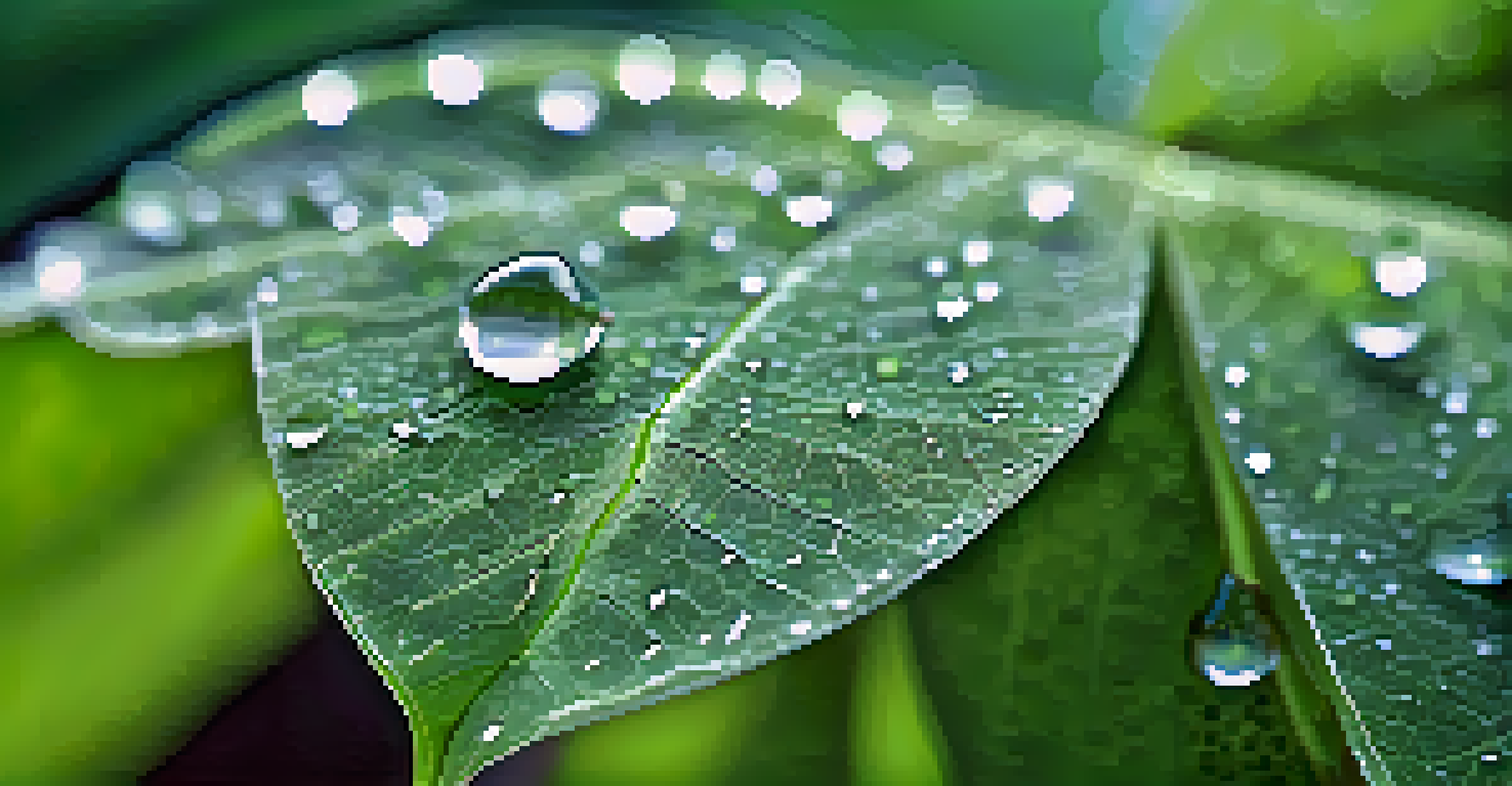The Connection Between Entheogens and Altered Consciousness

What Are Entheogens and Their Historical Use?
Entheogens are substances, often derived from plants or fungi, that are used to induce altered states of consciousness. Historically, these substances have played significant roles in various cultures, particularly in religious and spiritual practices. For many indigenous communities, entheogens are seen as sacred tools for connecting with the divine or gaining insight.
Psychedelics can help us to understand our consciousness and ourselves better, to see more clearly into the nature of reality.
From the ancient rituals of the Aztecs using peyote to the shamanic practices involving ayahuasca, entheogens have long been revered for their ability to alter perception and enhance spiritual experiences. They are not merely drugs; they are integral to the cultural and spiritual fabric of many societies. This historical context helps us appreciate the profound impact these substances have had on human consciousness.
As we delve deeper into the connection between entheogens and altered consciousness, it’s essential to recognize their historical roots. Understanding where these practices come from sheds light on their significance and the transformative experiences they can offer.
The Science Behind Altered States of Consciousness
Altered states of consciousness (ASC) can be described as shifts in perception, awareness, and cognitive processing. These states can be induced through various means, including meditation, sensory deprivation, and, of course, entheogens. Scientifically, ASCs are fascinating because they reveal how flexible and complex the human mind can be.

Neuroscience research shows that entheogens affect brain chemistry, often increasing connectivity between different regions of the brain. This can lead to profound changes in perception, emotional responses, and even a sense of unity or connectedness with the universe. For instance, studies using fMRI have demonstrated that substances like psilocybin can enhance communication between areas of the brain that typically don’t interact.
Entheogens and Spiritual Practices
Entheogens have historically been used in various cultures as sacred tools for inducing altered states of consciousness and enhancing spiritual experiences.
Understanding the science behind these altered states allows us to appreciate the potential therapeutic benefits of entheogens. This connection between brain chemistry and enhanced consciousness opens the door to new possibilities in psychological and spiritual healing.
How Entheogens Facilitate Spiritual Experiences
One of the most compelling aspects of entheogens is their ability to facilitate profound spiritual experiences. Users often report feelings of transcendence, connection to a higher power, or a deep understanding of existence. These experiences can lead to lasting changes in one’s worldview, often resulting in increased compassion and a sense of purpose.
The mind is like a parachute. It doesn’t work if it isn’t open.
For many, the experience can feel like peeling back the layers of reality, revealing a deeper truth that is usually obscured by everyday life. Anecdotal evidence suggests that individuals who engage with entheogens often come away with a renewed perspective on life, enhancing their spiritual practice or belief systems. The emotional and psychological impacts are often profound and transformative.
The potential for these substances to create genuine spiritual awakening speaks to the long-standing relationship between humans and entheogens. As we explore this connection, it's important to consider how these experiences might contribute to personal growth and collective understanding.
The Role of Set and Setting in Experiences
The context in which entheogens are consumed—often referred to as 'set and setting'—plays a crucial role in shaping the experience. 'Set' refers to the individual's mindset, while 'setting' pertains to the physical and social environment. Both factors can greatly influence whether the experience is positive or negative.
For instance, someone who approaches an entheogen with an open mind and a peaceful environment is more likely to have a beneficial experience compared to someone who is anxious or in a chaotic setting. This emphasizes the importance of preparation and intention when exploring altered states of consciousness.
Set and Setting Matter
The mindset and environment in which entheogens are consumed significantly influence the outcomes of the experiences, emphasizing the importance of preparation.
Establishing a safe and supportive environment can enhance the positive aspects of the experience and mitigate potential challenges. Understanding the significance of set and setting helps individuals navigate their journey with greater awareness and intention.
Potential Risks and Considerations with Entheogens
While entheogens can offer profound insights, it’s essential to approach them with caution. Not every individual will have a positive experience, and factors such as mental health history and the context of use can greatly impact outcomes. Some users may experience anxiety, paranoia, or even trauma during their journeys.
Additionally, the legal status of many entheogens can vary significantly by region, making it crucial for individuals to be informed about the laws governing their use. This awareness not only helps in avoiding legal repercussions but also ensures safety in their exploration of altered consciousness.
By recognizing potential risks, individuals can better prepare for their experiences and engage with entheogens responsibly. This balanced approach allows for a more enriching journey into altered states of consciousness.
Entheogens in Modern Therapeutic Practices
Recently, there's been a resurgence of interest in entheogens within therapeutic contexts, particularly for mental health treatment. Research has shown that substances like MDMA and psilocybin can be effective in treating conditions such as PTSD, depression, and anxiety. This renewed focus highlights the potential of entheogens as tools for healing.
Therapists are beginning to integrate these substances into carefully monitored sessions, where they can guide patients through their experiences. This structured approach aims to maximize therapeutic benefits while minimizing risks. The goal is to create a safe space where patients can confront difficult emotions and experiences with the support of a trained professional.
Therapeutic Potential of Entheogens
Recent research highlights the effectiveness of entheogens like psilocybin in treating mental health conditions, bridging ancient practices with modern therapeutic approaches.
By bridging ancient wisdom with modern science, we can explore new avenues for healing and personal growth. The use of entheogens in therapy continues to evolve, promising exciting developments in mental health care.
The Future of Entheogens and Consciousness Exploration
As society continues to explore the connection between entheogens and altered consciousness, we may witness a shift in cultural perceptions. Increasing acceptance and understanding of these substances could lead to broader discussions about consciousness, spirituality, and mental health. This evolving narrative may help destigmatize entheogen use and pave the way for more research and exploration.
Moreover, advancements in technology and neuroscience will likely deepen our understanding of how entheogens affect the brain and consciousness. As scientists uncover the mechanisms behind altered states, we may unlock new therapeutic potentials and personal insights.

Ultimately, the future of entheogens in consciousness exploration is promising. With the right balance of respect, research, and responsibility, these substances can continue to offer profound experiences that enhance our understanding of ourselves and the world around us.